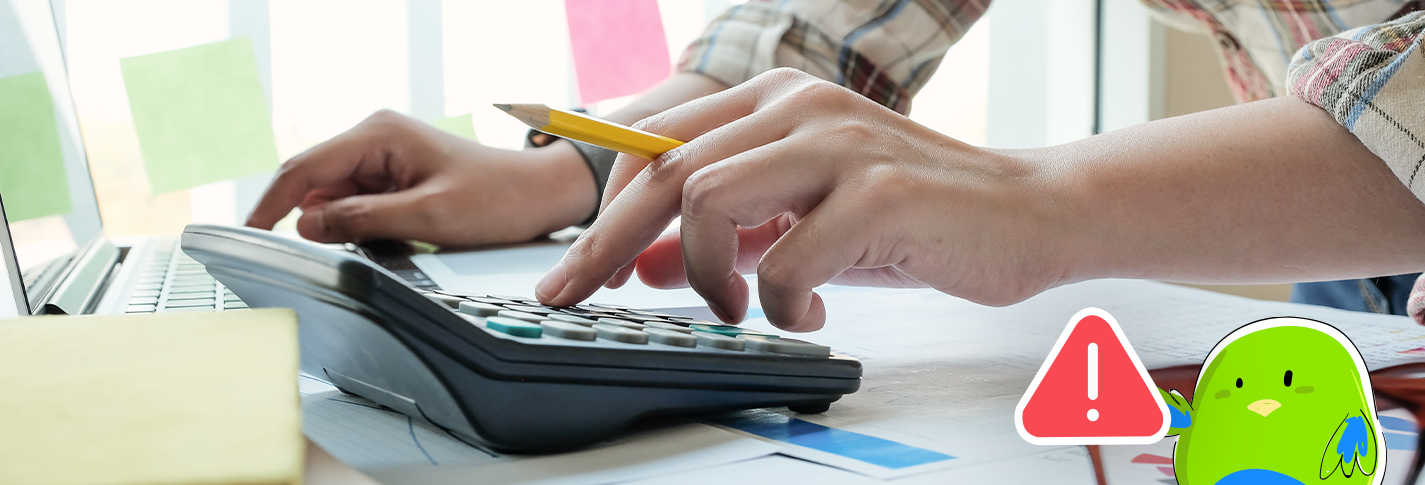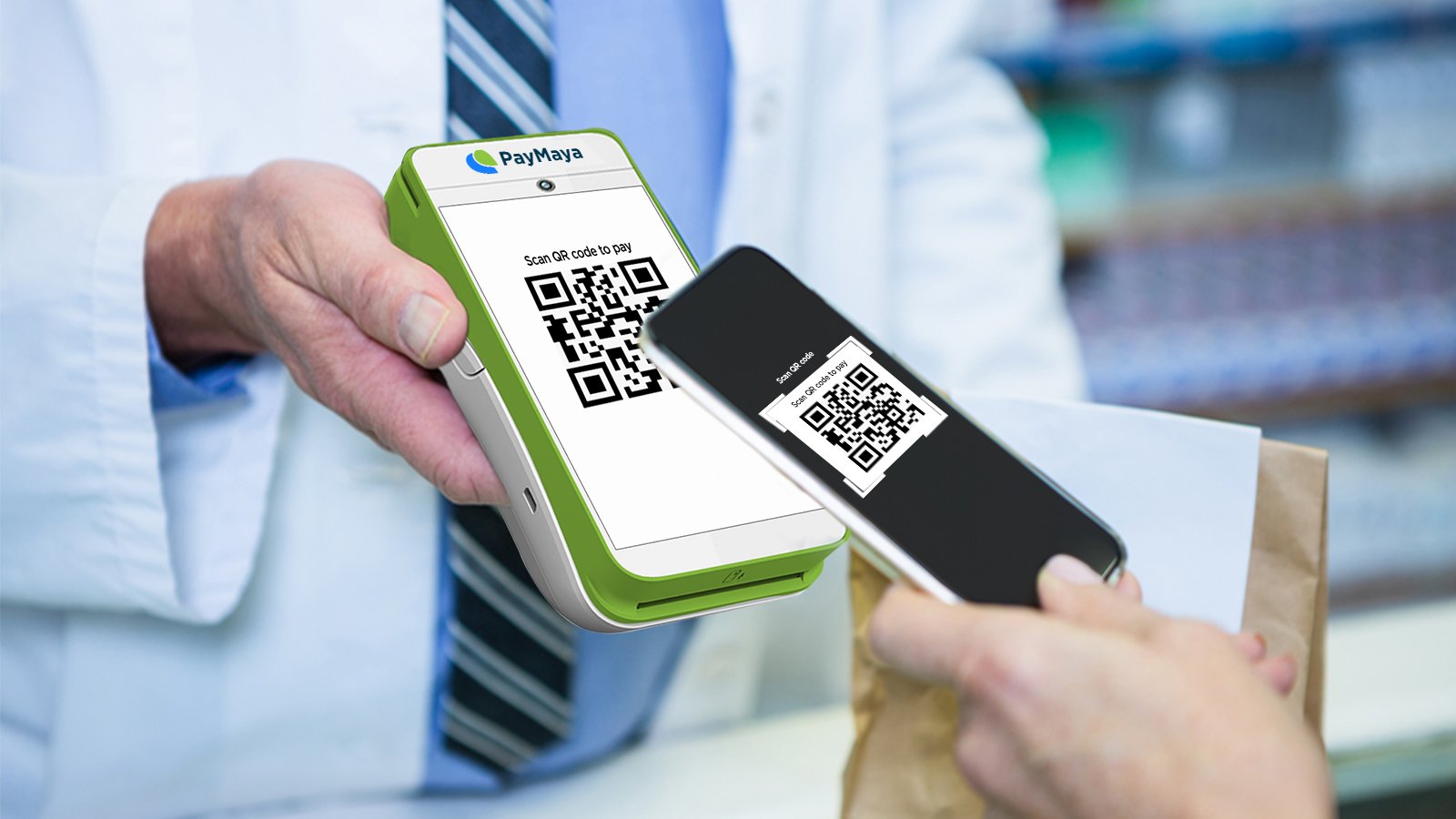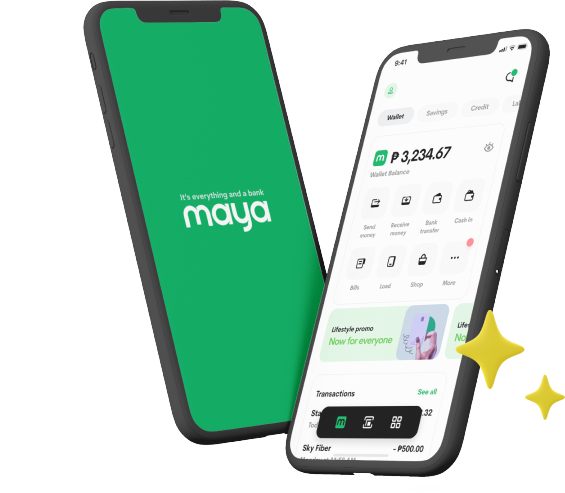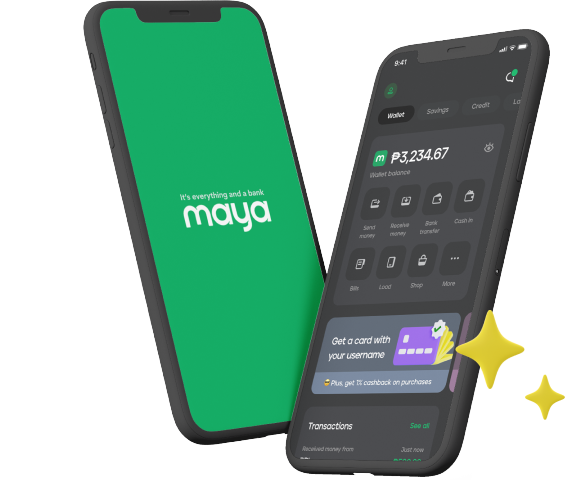
In the Philippines, money concerns are oftentimes hard to talk about. Few people are very open about everyday matters in personal finance, like how much money they’re setting aside for retirement. When the idea of debt comes into the picture, it gets even harder—especially if you’re the one on the receiving end. The idea of being in debt may scare you so much that you avoid acknowledging your debt-related problems altogether. And by the time you do, you may already be worse for the wear. You may owe your lenders a lot more than you expected and paid more for a necessity than you originally intended. Along the way, you may have also spent a big chunk of your savings that will be hard for you to quickly recoup.
That said, what can you do to address current debt-related problems and prevent bigger ones from happening to you in the future? At Maya, we believe that part of the answer lies in reading the signs. There may already be some clues in your current financial habits that point towards worsening debt trouble. The more responsive you are to these, the more quickly you can resolve your debts and achieve full financial freedom for yourself.
In this feature, we’ll discuss the 10 most urgent warning signs of debt trouble, plus 10 useful tips on how to conquer your debt problems. These will help you stay in control of your debts and your personal finances—and start a life where fear of debt doesn’t consume you.
What Are the 10 Signs That You Could Be Experiencing Debt Trouble?
To begin, debt in itself is not necessarily a bad thing. Sometimes, it is completely practical to borrow money from a credible lender in order to pay off important expenses. One everyday example of debt is using a credit card, as you are paying for items using money borrowed from a financial institution. So long as you are using the card, you are obligated to pay your debt to the credit issuer every month. For those who are responsible about their payments, this state of being in debt is not inherently damaging to them.
Debt becomes a problem, however, when it is no longer manageable to the debtor. If you find yourself in situations where your debt to other people or institutions is worrisome, you’ve bitten off more than you can chew. It may take some time for you to realize the depth of the problem, but once you do, you should commit to changing your habits. Pay attention if more than one of these signs applies to you.
You Don’t Have an Exact Handle on All Your Finances
If someone were to ask you about the state of your personal finances, would you be able to give them a quick answer? Or would you have a deer-in-the-headlights kind of moment? Can you say for certain that you’ve got enough money saved up for daily expenses and emergencies after paying all your monthly obligations? If you’ve got shaky answers to such questions, then you may be in for some debt trouble.
You’re Using Too Much of Your Savings to Pay for Daily Expenses
Another telltale sign of imminent debt trouble is if you’ve spent large chunks of your savings to pay for daily expenses like transportation and electricity. If you do this too often, soon there’ll be nothing left for important things you saved up for, such as tuition or a new car.
You’re Spending a Lot on Penalties
Do you find yourself constantly paying late fees for your credit card or other bills? Penalty fees may not seem like a big deal in the moment, but if you’re not careful, they could add up. Soon, you could end up in a serious debt SITUATION that you could have avoided had you paid your obligations on time.
You Don’t Have a System to Keep Track of Your Personal Finances
It’s not a good sign if you spend money and simply toss your receipts. Your spending habits may not be appropriate to your income or your ideal budget for your day-to-day expenses. But you wouldn’t be able to know that if you had no system for tallying your spending.
You Dread Paying Your Bills and Taxes
Nobody likes paying household bills or taxes, but it’s worth noting if they become a source of great dread for you. If you find yourself always procrastinating to pay your bills or taxes, it may be symptomatic of a big debt-related problem.
You’ve Gotten Declined at the Point of Sale
Have you gone through the uncomfortable situation of having your credit card declined at the supermarket, pharmacy, gas station, or other commercial establishment? If this has happened to you more than once, it should be a wake-up call to manage your credit card debt more responsibly. You don’t want to be in another situation where you scramble to get cash or wonder if you have sufficient balance on another payment card.
You Can’t Make More Than Minimum Payments on Your Loans
It’s not bad to make only the minimum payments on your existing loans. But take note that making only the minimum payments will keep you in debt for a longer time. This generally makes it more costly for you to borrow money. If the loan terms stretch on and you anticipate having difficulty with the interest in the future, you should address the problem now.
You’ve Overdrawn from Your Bank Account
Constant overdrawing from your bank account is another symptom of debt trouble. Ideally, you should never withdraw so much that you keep your funds under the bank’s minimum balance. But if it happens—and more than once—you could risk steep overdrawing fees and even the closure of your bank account.
You’re Not Eligible for Any New Lines of Credit
One day in the near future, you may want to have the option of another line of credit. But if you’re not eligible or if you keep getting rejected by the lending institution, it may be because you’re having debt trouble. This will leave you with few opportunities to demonstrate your creditworthiness and your aptitude for borrowing larger amounts of money.
Your Debt is Starting to Take Over Your Personal Life
Lastly, you are likely to be in debt trouble if your money problems are taking a toll on your personal life. Has it come to the point where you’re not being completely truthful to your partner or family members about your credit card debt? Are you having a hard time sleeping because you’re anxious about paying your bills? If your answer is yes, then it’s definitely time to get help and to rework yourbits financial ha.
The 10 Best Tips for Handling Debt Trouble and Becoming More Financially Free
Luckily, if you address the signs early, you can take control and become a master of your money—not the other way around. Below are the 10 best tips for dealing with current debt obligations, avoiding future pileups of debt, and slowly becoming more financially responsible.
Commit to Solving Your Debt Problem
Everyone who experiences debt-related problems has their own reasons why. You have to figure out what your chief causes of debt trouble are, whether it’s impulse spending or spending too much on late fees. Once you know these for sure, you can look for specific avenues for saving money and managing your debt. You should also determine what your own personal priorities are when it comes to facing your debt problem. The hierarchy can include paying for basic necessities, then paying off certain obligations, then spending on leisure or luxuries. As long as you have your priorities, you will be able to handle your finances in an organized manner.
Make a System for Tracking Your Personal Finances
To help you curb debt-related problems, you can adopt a system for tracking your personal finances. This will be a means to help you visualize how much money you’re handling on a daily basis, and what you usually spend it on. Even if you dedicate only a few minutes a day to tracking your expenses, it will be of great help to your financial habits. You can use a mobile app or a simple spreadsheet on your computer, whichever you’re comfortable with.
Limit Your Spending Through Certain Methods of Payment
Your default method of paying for items may be part of what’s leading you into debt. For example, if you use your credit card often, you may be tempted to spend more than what you need and end up with an overwhelming debt. Instead of using a credit card, try loading your Maya e-wallet with a reasonable amount of money and spending from there. Shifting from a postpaid to a prepaid method can make you more careful about how much you’re spending in the moment. This kind of mindset is what can help you avoid unmanageable debt.
Pay Your Bills and Taxes On Time
To avoid hefty penalties, you can find more convenient methods to pay your bills and your taxes. If you’re assured of quick, smooth, and timely transactions, you’ll have an easier time resolving these payments. Pay your bills and taxes with Maya, which only involves choosing the biller on the Maya app and then entering the amount to be paid. That way, you can settle your obligations immediately—and, you can avoid the hassle of leaving your home and queuing for a long time.
Stay on Top of Your Loan Payments
A good rule of thumb to follow is: if you borrow money, do what you can to pay it off in the shortest time possible. If you need practice demonstrating your creditworthiness, you can try your hand at managing small loans. One way you can do so is by exploring Maya’s loan program with Cash ni Juan. Qualified Maya customers can borrow small amounts between PHP2,000 and PHP5,000 and pay within 14 days. When you’ve deemed yourself good at handling small loans, you can take on the challenge of applying for bigger ones.
Enroll in Online Banking
Many of the Philippines’ top banks have their own dedicated apps or online banking facilities. You can use these to track your account balance on either a daily or a weekly basis. Even when you’re not withdrawing or depositing money, it’s good to keep tabs on your bank account. This is how you can ensure that you’re always within the minimum balance and that regular funds, such as from your salary, are coming in.
Motivate Yourself with Your Own Financial Goals
Tackling your debt-related problems may seem like a difficult feat. But the process will definitely be easier if you remember your own financial goals. It’s good to remind yourself that you want to resolve debts in order to get a new house or car, or welcome a new baby. You’ll become more motivated to work through your problems if you’re dreaming of a specific outcome.
Think of a Time Beyond Now
Another good thing to remember is that you are saving and managing your money not just for your current self, but for your future self. You wouldn’t want to be severely in debt when you’re retired, injured, or gravely sick, as that’s precisely when you’d need the money.
Say Yes to Money-Saving Deals and No to Unnecessary Spending
When you start your journey out of debt, you’ll realize that there are many affordable alternatives to the ones you’re already used to. Every centavo will count when you’re spending for monthly necessities like mobile data. You can definitely save up on your telco expenses by buying mobile data at a discount with Maya’s data packages.
You should also take the time to build financial discipline by saying no to unnecessary expenditures, which are often the cause of debt. You don’t have to have an expensive meal out more than once a week. You also don’t have to upgrade to the same top-of-the-line gadget just because everyone else around you has done so. The discipline will have a very tangible reward—you will be able to transition more quickly out of debt and enjoy your financial stability.
Don’t Hesitate to Reach Out for Help
Admittedly, staying on top of your finances isn’t always easy work. But don’t forget that you can always seek help. You can look for the advice of financial experts, or you can simply ask your family and friends for their own tips on managing debt. There are people in your life who want to support you and are rooting for you to become independent, self-sufficient, and good with your money. Accept their support, as well as any feedback that could help you stay on top of your debts.
Conclusion
Again, conversations about debt-related problems are usually difficult to have. But they are all the more necessary for you to address the problem. If you’re more open about the fact that you’re experiencing debt trouble, it’ll be easier to confront your money problems with a clear head. Ask the hard questions—and do the hard work of settling your debts—before it’s too late!
You might also like
These Stories on Financial Literacy




